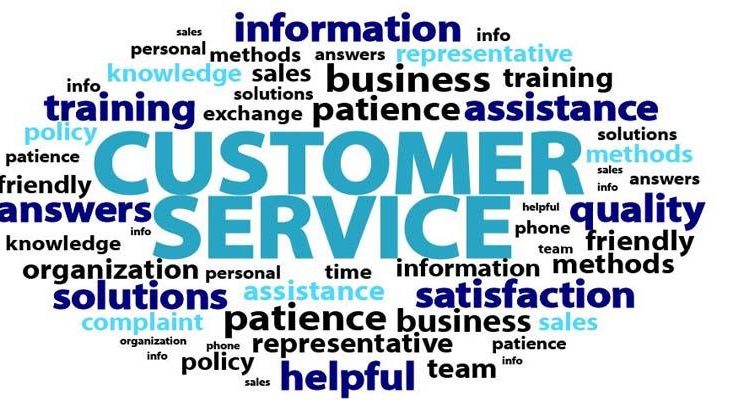Who are the right type of investor for your business? Business owners need capital to finance their startups or to expand an existing business. There are two primary sources of capital which include equity and loans. Though using equity reduces the business liabilities, it can be unwise to invest 100% of your retirement benefits in a business.
Even if you can finance your business operations and have something left for your family, it is wise to partner with some investors in your business. The investors will not only fund your business but also offer their strengths and experience for your business’s success.
Additionally, they can help you spread your business risks; so that you won’t have to bear all the loss should anything terrible happen to the business. Without further ado, this article discusses the various types of investors that may be right for your business and the best strategies for attracting them.
Angel Investors
An angel investor is a high net-worth person who helps small businesses and entrepreneurs finance their startups in return for ownership equity in the company. Since most of these investors have made it through business, they are more likely to offer valuable business insights to help you achieve the business goals.
The angel investors may offer their financial support in the form of either a one-time investment to get your business off the grass or partial injections to help you maneuver difficult moments during startups.
You can secure angel investors among your family members and friends. You can also find some at pitch live events and or approaching them via online platforms. However, the pitching process is not straightforward.
To win the investors, you need to be precise on the business goals and strategies you will use to achieve them. Also, you need to be clear on how the investor will benefit from the partnership.

Banks
Banks are another source of external finance and investors to a business. However, most commercial banks are unlikely to issue loans for business startups due to uncertainty surrounding the business’s success.
The common beneficiaries of bank loans are businesses that have been in the field for some time and have sufficient backing to show their operational efficiency.
To qualify for the bank loan or partnerships, most commercial banks will require you to show your business’s direction. That is your business goals and the strategies put in place to achieve them amidst cut-throat competition. Additionally, they may need you to explain how you generate and manage cash flows.
Another essential requirement that banks will consider to approve you is the collateral backing and your credit score. If you can present all the above requirements, the chances are high that most banks will approve your request.
After approval, they will determine the amount of financial support you can qualify for and then invest in your business.
Venture Capital Firms
Venture capitalists are wealthy individuals who love investing substantial amounts of capital in startup businesses with growth potential. The businesses, in turn, reward the investors with carried interest.
They are more like banks in that they only invest in the business after the business starts generating substantial amounts of revenue. Though the investments are too risky (may invest up to $10 million as a single investment), they attract impressive returns once the business is successful.
To win the venture capitalists, you need to tell them your success story. That is, how you started the business and how it has steadily grown with time. Additionally, you need to explain your future goals and how you have strategized to achieve them. And, most importantly, don’t forget to demonstrate how your business will benefit them.
Peer To Peer Lenders
Peer-to-peer lenders are the individuals who offer loans to businesses or individuals directly without any financial institution’s involvement. In most cases, p2p lending is done via online platforms that connect the borrowers to lenders. Since most peer-to-peer loans are unsecured, they tend to attract higher interest than typical bank loans.
To secure a p2p lender, you must:
- Apply for a loan through a p2p lending platform.
- After the application, the platform will examine your application against your credit rating to determine the degree of risk. The platform will then assign you the most appropriate interest rates for the loan.
- After the approval, the platform will supply you with different loan options from various lenders. You can take the time to select the offer that seems interesting to you.
- The lender will release the agreed loan amount to your business. You should repay the loan amount plus interest in installments or otherwise, as your agreement stipulates.
Note that you won’t qualify for the deal if you have a poor credit rating or don’t fill the application form as required.
Corporate Investors
Corporate investors refer to an incorporated organization that decides to invest/engage in control of another business. While some corporate investors may partner with you with the pure intention of earning interest income, others may have some hidden agenda.
For instance, if you supply the corporate investor with raw materials, they may partner with you with the primary intention of lowering their expenditure on those raw materials or taking control of the company.
If the corporate investor is your competitor, they may partner with you to learn your business secrets to drive you out of the market. The critical thing to know is that corporate investors may have different interests in your business. And, you should be careful when partnering with them lest you end up in regrets.
To be on the safe side, only close deals with corporate investors you requested for the deal and not the other way around.
Conclusion
As you can see, various types of investors can help you with financing your business. Each of the investors has a predefined criterion that you must meet to qualify for their deals, as discussed in the article. It’s now upon you to decide what type of investor to close your business deals with and take your business to the next level.
The ball is now in your court.
Recommended for you, 5 First Steps To Start Trading On The Stock Market










































































